Church of MO: 2009 Supersport Racetrack Shootout
Ten years ago, it is written, the 600 Supersport class was still hotly contested, bitterly fought over, super-important to the Big Four, etc… Then something happened. The Great Recession, the Boomer Regression, the ADV Expansion? The street portion of 2009’s de rigueur 600 Shootout! has lost the illumination from its manuscript; luckily we unearthed the video, and the Willow Springs racetrack portion of the smackdown. However current sales figures may be, all four of these motorcycles are still available as new models – and the winner of this little comparo retails for a mere $200 more than it did ten years ago. Let us praise and give thanks to Duke, Brissette and Gardiner – and also to the freelance apostle Andrea for some nice photos for a change. Amen, and Happy New Year.
2009 Supersport Racetrack Shootout
The 600s take the battle to the track
Oh, if only it were so easy. Sometimes even the pros are left scratching their noggins like a small party of confused chimps. Such is the case with the 2009 crop of Japanese Supersports.
We recently tasked ourselves with putting the racy 600cc weapons from Honda, Kawasaki, Suzuki and Yamaha through the wringer in everyday environs – streets, freeways, canyons, parking lots… places where most race-bred middleweights will spend the majority of their life after exiting dealer showrooms.
At the end of this real-world exercise we rested confidently in our choice of the all-new 2009 Kawasaki ZX-6R as the new King of Supersport. The new Ninja’s best-in-class power and a much sharper chassis than previous gave it the nod in our street-biased shootout. Though time on the dyno provided scientific proof that the revamped Ninja had indeed shed its softish powerband from the previous iteration, we didn’t really need dyno results to tell us what we were already feeling.
“Its engine reminds me a lot of the old 636,” Mark Gardiner rightly said of the new Ninja.
The Ninja pumped out nearly 108 rear-wheel ponies on the Area P dyno, 5 horsies up on the next-best Gixxer and 10 more than the CBR. The R6 also had some top-end horsepower stolen in 2009 because of noise regulations. For the full story, scroll down to the sidebar on this page.
Not only is the ZX’s engine revised and retuned to make the most power, the chassis received numerous updates to make it lighter steering and better responding, it lost upwards of 20 pounds, and it retained its best-in-class brakes. The Ninja went from almost last in 2008 to top of the class this year after our street ride.
Round Two
Riding a bike closer to the edge of its performance envelope – especially in this group of race-developed steeds – will make known things about a bike’s character that street riding simply cannot expose. Thus it’s time to for us to move on to the second half our evaluation in our annual Supersport Shootout.
Would the opportunity to stretch throttle cables, slam shifters, and crush brake levers reveal a new pecking order? Will the GSX-R600 remain our second most fave? Can the CBR regain ground lost in the street ride? Does the racy R6 have a trick up its intake to usurp them all in its most flattering environment?
We took this quartet up into the lush Mojave Desert to the Streets of Willow racetrack to find the answers we needed. We spent a day with the friendly folks at Hypercycle for one of their track days, screaming around on identical track rubber, Michelin’s new Power One (look for a review in the coming weeks). You’ll forgive us for skipping the preliminaries and getting directly to our impressions.
| Hypercycle Trackdays |
| By Kevin Duke In need of a racetrack for the second part of our shootout, we called up a guy we know who has been around them for decades. Carry Andrew is not only a nationally recognized racer mechanic (he has two AMA Tuner of the Year awards), he also has been using his Hypercycle enterprises to host trackdays since 2000. Hypercycle keeps things simple, allowing prices to be amazingly reasonable. The events are held at just three Southern California racetracks (Willow Springs, Streets of Willow, and Buttonwillow), but they are within 500 miles of about 30 million people. The KISS concept also precludes lunch, as many of their clientele preferred to eat at their own schedule and to their own taste. So HC dropped that perk – and their prices. A day at the SoW like ours costs $135 or less. Pre-registration brings it down to $125. Or even less if you’re a racer or military, plus there’s a group discount if you bring four or more of your friends. The majority of their events (about 120 since they began in 2000) take place on Mondays. Andrew, who has worked with such racer luminaries as Nicky Hayden, Jake Holden, Jimmy Moore and Michael Barnes, is a master technician. Much of the work done at the Hypercycle shop is building potent engines, but they also do chassis and suspension work. Five national championships are evidence to his prowess. He added trackday hosting to his resume back in 2000. One thing you’re assured of at a Hypercycle trackday is lots of track time, and the atmosphere is congenial and friendly. “We like riding,” says Andrew. “We love riding!” We do, too, Carry. See you again soon. |
Fourth Place: Yamaha YZF-R6 Specs
The revvy R6 feels right at home on the racetrack, much more than it does on the street, as the racetrack environment makes it possible to keep the tach up high where the R6 motor likes it. But there’s no getting around the fact that the Yamamotor feels softer than its rivals. In lower revs the mill simply seems flaccid next to the others. However, once the tach needle hits the 10.5K mark, power comes on with a fairly healthy wallop. Too bad the fun arrives so late, as it’s only good for about another 2 or 3K rpm before the exhaust valve stifles its breathing.
Unless you’ve carried enough corner speed heading in to a slow turn, relying on the throttle to dig you out of that corner will have you slapping your ass and yelling, “C’mon, giddy up!”
Fueling is flawless and super-easy to manage. YCC-T and YCC-I are a potent pair; their collective smooth performance translates into confidence, the rider knowing exactly what to expect when twisting the grip. In the early part of the day guest tester Mark Gardiner felt he was much more aware of the track’s surface while aboard the R6, adding that he had a disquieting sense that he was putting too much faith in the front tire. “I got the feeling that, in this crop of bike, the R6 is the most dependent on setup,” he said, not knowing at first how right he was.
After some expert suspension fiddling – lowered fork tubes and reduced compression damping – by Yamaha professional tech Mike Ulrich, all of us felt the R6’s now-lighter steering effort was on par with GSX-R. Kev also believed it tracked much better over The Street’s bumpy surfaces.
The R6’s brakes are a couple paces behind the competition. “They lack the sensitivity offered on the other three, and stopping power is generally underwhelming, with noticeable lever travel to boot,” Pete noted.
There’s no denying that the R6 is a formidable machine, but at day’s end we didn’t ascertain anything about the Yamaha that would’ve moved it out of the same placement we gave it on our street ride.
Second Place: Honda CBR600RR Specs
Yes, we said second place, and this means handing out a rare Motorcycle.com tie. On the plus side, the CBR feels solid, as of one piece from axle to axle, and it made all our testers immediately confident. It also garnered kudos for its best-in-class agility, boasting a racy rake and the lightest weight. Yet the RR isn’t the least bit squirrely with much of its stability credited to the high-tech electronic steering damper.
“It was completely unflappable over bumps. It encouraged me to use all the tire, and lots of the available grip,” said Mr. Mark. Pete echoed those sentiments: “For me, it was the only bike that didn’t need adjustments and was immediately ready-to-ride ‘out of the box.’”
New-for-’09 calipers sourced from the CBR1000RR provide plenty of power, but are just a couple ticks behind the ZX in terms of making the rider feel directly connected to the brakes like the ZX’s binders do so incredibly well. Fueling is abrupt from closed to open throttle, and it had the heaviest throttle return spring. The combination of those two nits can cause a rider to divert attention from other important duties.
The CBR’s muted top-end power this year hurt it on the two longest straights at the Streets. Kevin went so far as to say he could feel it being choked up on top. There’s no denying the peak power deficit. Still, where grunt is needed most – like the first or second gear final turn before the front straight – the Honda pulls with authority. Its mid-range power is neck and neck with the ZX, aided by short overall gearing.
But it’s missing a slipper clutch, gear-position indicator and shift light, plus it could use a half-dozen more ponies. In this photo-finish class, any check mark in the N/A column can really hurt a supersport’s chance at top-honors. Yet, the Honda is so darn good in so many other ways, it’s easy to see how we had such a difficult time ranking it any lower than spot #2.
Second Place: Suzuki GSX-R600 Specs
If you’re a real racer or trackday addict, recommending the Gixxer makes perfect sense. Aftermarket support is abundant, and the bike has a knack for getting around a racetrack without drama. Its powerband comes second only to the Ninja, plus it has the slipper clutch and comprehensive gauges the CBR lacks. The Gixxer gets extra brownie points for being the only bike to come with adjustable footpegs.
But we were shocked when we noticed the Suzuki’s MSRP had shot up – $1,000 from ’08 – to the priciest of the group. And it feels heavier than the CBR, ‘cause, well, the CBR is the lightest in the collection. “The CBR is easier to enter and exit corners due to its shorter wheelbase and lighter weight, but the GSX-R has spot-on engine management in every gear and rpm,” offered our resident Ducatisti, Kaming Ko.
Along with the Gixxer’s competitive and user-friendly engine, its front end is adept at constantly telegraphing all the data your mind can handle, yet the neutral steering chassis is ever-composed, happily taking orders and doing exactly what you ask of it. In fact, it’s almost uncanny how accommodating the Suzuki can be. Need more lean angle at mid-corner? Just give the bars a shove and the bike responds instantly without any hint or suggestion that what you just did may have been a less-than-bright move on other bikes.
Using turns that are crucial to a good lap on The Streets as his barometer, Mark sensed he wasn’t circulating quite as well on the Suzuki as on the Honda. But he promptly added that he felt if had a little more track familiarity he could’ve gone just a quickly as he did on the CBR.
“If its mill was endowed with nothing more than another 3 to 4 horsepower it could easily take a legitimate swing at dethroning the Ninja,” Pete said with conviction. “It’s comfortable and easy to ride fast right out of the gate. I needed little to no acclimatization after having not ridden this bike in at least two weeks. Essentially, it does little wrong.”
The Winner: Kawasaki ZX-6R Specs
The ZX first proved it had the goods when we rode it on the street, then backed up those impressions with the best dyno chart of the group. This power surplus of the 6R is readily apparent on the racetrack. The Streets of Willow has two areas in which a rider can accelerate at full throttle through a couple of gears, and the ZX consistently achieved higher speeds than the others. But just as impressive is the Ninja’s pull throughout the rev range.
“The abundant grunt from the engine means a rider can be a little lazier with gear selection, knowing full well the bike will pull cleanly from a slow-speed corner,” said Pete. “With these bikes so evenly matched in so many ways, a machine that exits a corner quicker without tap dancing on the shifter can mean the difference between a race winner and first runner-up.”
An example of how closely matched this group was revealed in our first sessions on the 6R. Its suspension, including the new technology of its Showa Big Piston Fork, was unable to suck up The Streets numerous bumps as well as the CBR and Gixxer, and a few of our testers weren’t confident lapping the track quickly. But thanks to the seasoned skill set of pro Kawi tech (and caterer extraordinaire), Joey Lombardo, the ZX tracked much better over uneven surfaces. A few carefully chosen clicks resulted in Duke’s lap times dropping by nearly 2 seconds!
Add to the Ninja’s best-in-class mill a transparent transmission/slipper-clutch combo, excellent Showa BPF sticks, a responsive chassis and Nissin radial-mount brakes that rival many Brembo units we’ve tested, and we arrive at a total-package supersport – the overall winner of our 2009 Supersport Shootout.
Having finally wrapped up one of two of the most important comparisons we do each year, we can’t wait to see what Honda, Suzuki and Yamaha will be doing for 2010 to catch the Assassin!
| In My Pit… |
| I will have to choose the Honda. No doubt the Kawasaki ZX-6R is the performance leader among this group – with upgraded suspension components and additional manageable power, it is by far a better machine. But if I were to buy a 600 today, I will have to choose the CBR600RR because Honda workmanship has the highest standard in my view, and the CBR is no exception with its light weight, short wheelbase and linear low-end torque making a perfect bike. The sitting position is as good as it gets for a sports bike riding in traffic or twisty roads. However, if one was to compete in stock production class at his/her local club races, then you’d better pick the 2009 Kawasaki ZX-6R! –Kaming Ko, favored-status test rider As a mediocre rider (or maybe I should say as a coward!), the track environment is about confidence, which is to say, about the chassis. If I was choosing a track-biased 600 streetbike, I’d go with the Honda CBR600RR. Even though it was the bike I rode first, on a track that was still cold and largely unfamiliar, I was able to carry more speed through more corners on the CBR than any of the other bikes. The Honda delivered a mainline hit of confidence. The Suzuki GSX-R600 would be my second choice. If I rode mostly on the street and only attended a couple of track days a year, I’d buy the Kawasaki ZX-6R with the Honda as second choice. –Mark Gardiner, famous author When it comes to the 600cc sportbike class, much is determined by the relative power a bike has over the others. Sorry to the other OEMs, but in this category you got beat by Team Green this year. It wouldn’t mean much if the ZX didn’t handle, but it does – and it also lost significant poundage this year. Combined with improved looks and finish quality, plus some of the best brakes in the business, it’s my choice for the best 600 this year. If the ZX really was going in my garage, I’ll take mine in Candy Surf Blue, bolt on a stylish aftermarket exhaust and look for risers that would lift the handlebars about an inch higher. –Kevin Duke, Editor-in-Chief Blah, blah, blah, GSX-R with a Power Commander and pipe. –Pete Brissette, recovering malcontent |
- Shift Vertex leather suit
- Arai RX7 Corsair helmet
- Shift Vertex gloves
- Alpinestars Supertech R boots
- Shift Vertex leather suit
- HJC FS-15 helmet
- Shift Vertex gloves
- Alpinestars S-MX Plus boots
More by John Burns



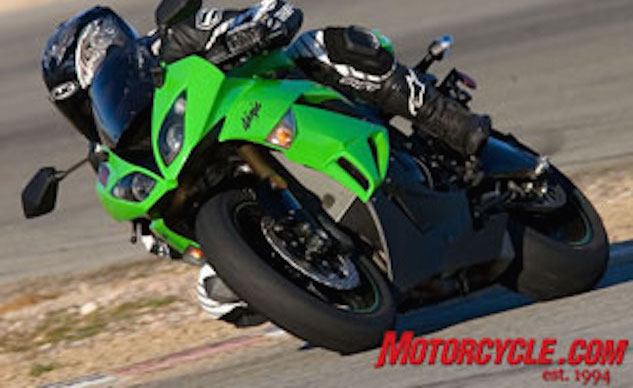














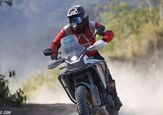
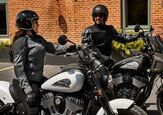
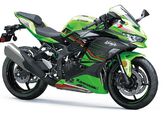
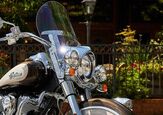
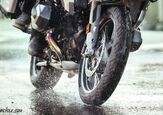
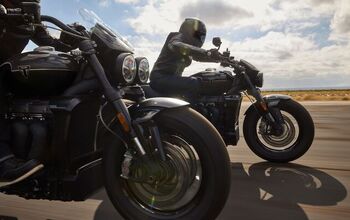
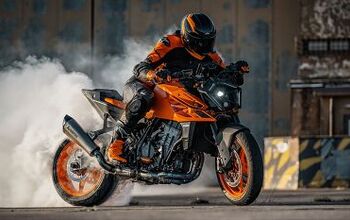

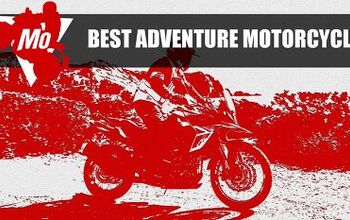
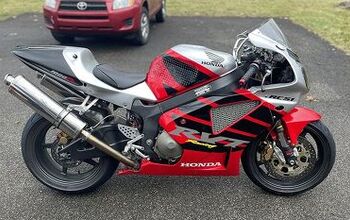
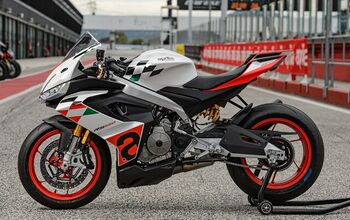
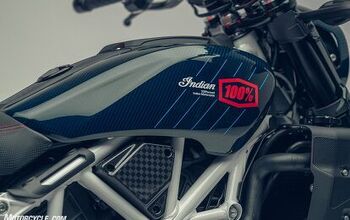

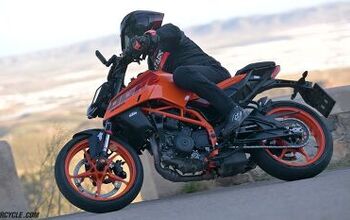
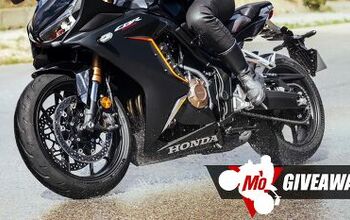
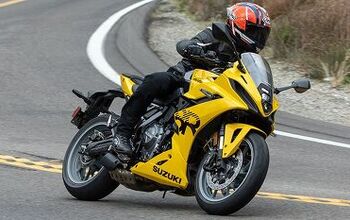
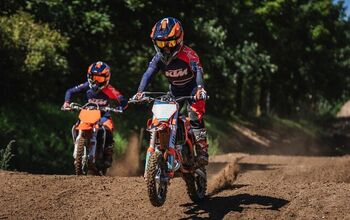
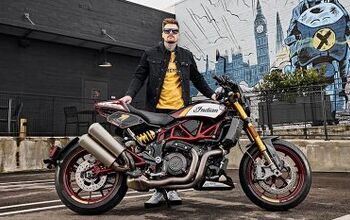

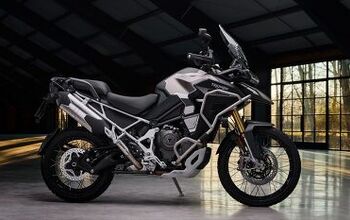
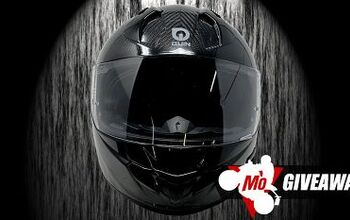
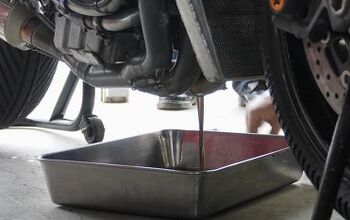
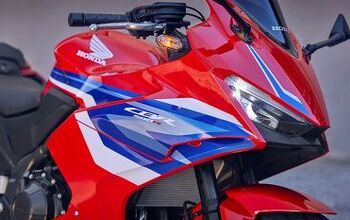
Comments
Join the conversation
Great lede.
I don't know how sportbikes, especially supersports, endure. I think 3 of the 4 bikes here still have the same engine. Factor in the value and practicality proposition of the increasingly abundant supernaked, as well as the growing selection of used and often well modified supersports and it's a true marvel that there are 2020 models of all these bikes today. On the street and in the context of the market they kind of seem to combine many of the worst elements. But on the flip side they must still sell enough to be worth making, and I'm guessing there are homologation requirements for racing. Still a strange segment.